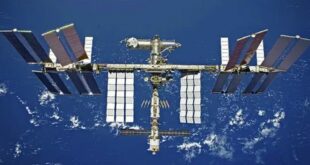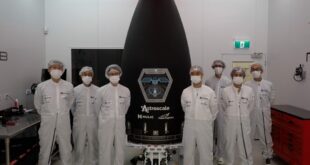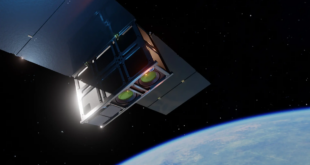
Edinburgh / Vienna, 15 August 2022. – The Republic of Moldova successfully deployed its first satellite, TUMnanoSAT, from the Kibo module of the International Space Station (ISS) with the support of the United Nations Office for Outer Space Affairs (UNOOSA) and the Japan Aerospace Exploration Agency (JAXA) under the KiboCUBE programme, the United Nations said. KiboCUBE is part of the Access to Space for All initiative enabling developing nations to develop and deploy cube satellites (CubeSats).
TUMnanoSAT was built by the Technical University of Moldova (TUM). The aim of the mission is to demonstrate technology in various modules and subsystems of the CubeSat. Tests will include sensor behaviour, satellite communications, solar electric power management and the endurance of electronic components, the UN said.
With the deployment, TUM expects to attract Moldovan students to pursue a career in STEM and to strengthen scientific space research. If the mission is successful, the country’s space activities could see a boost in support of socio-economic development.
TUMnanoSAT is the fourth satellite to be deployed under the KiboCUBE program in five years. The first three countries to launch CubeSats from the ISS were Kenya, Guatemala, and Mauritius.





